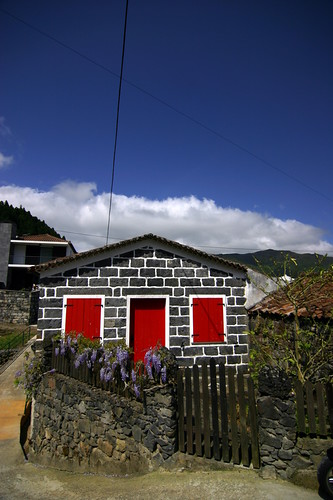In the XVIII century the village grew with the help of its excellent harbour that, in addition to being a merchandise market also served as a refueling centre of the international shipping routes of the post-industrial era. In 1837 the wine and whale exportation industries reached its maximum and following a new source of employment and profits was born - the American whaling, initiated by its consul who greatly helped Faial’s development, Charles Dabney. Afterwards started the civil war between Portuguese Liberals and Absolutists, being the first strongly helped by the people of Faial and promoting Horta to the category of town on July 4, 1833. Coal storage companies were installed to supply the new steam-engine ships but, in 1857 a severe cyclone lead a new immigration spree of 1523 people who had been left penniless to Brazil, USA, Britain and France. The number of steam-engine and wind ships did not stop increasing and in one of them arrived Prince Albert of Monaco, who spent some time in Faial promoting several scientific expeditions. At the start of this century submarine cables became essential to telecommunications between America and Europe and it was in Horta, owing to its excellent strategic position, that British and German cable companies decided to install their intermediate stations. The city develops and becomes urbanized, the harbour's dock is built, roads are surfaced and the public electric network is inaugurated.
All the information and local insights you need for the most wonderful holidays in the Azores Islands.
Subscribe to:
Post Comments (Atom)
Açores - Azores - São Miguel - Furnas
Açores - Azores - São Miguel - Furnas , originally uploaded by Luis Miguens .

-
Açores - Azores - São Miguel - Furnas , originally uploaded by Luis Miguens .
-
Impressive group of lavas next to the sea, perforated by many grottoes and tunnels. Volcanic arches over the sea. Rocks with curious shapes,...
-
Terceira Island ( Portuguese: Ilha Terceira) is an island in the Azores, in the middle of the North Atlantic Ocean, with an area of 396.75 k...


No comments:
Post a Comment